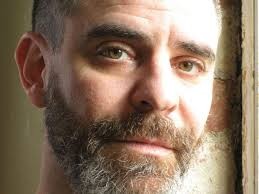
I am getting more sentimental, more generally angry, quicker to find and cherish sadness, and celebrate goodness in my middle age. It's all good, as the young kids say. Sort of. At least I seem to have a middle age. The late and much-missed David Rakoff, whose sweet eyes and tender face haunts those who loved him, died at 47 after doing more with the life he had than most. Reminds me of that line by another humane, whip-smart, genius wit, Tom Lehrer, who said, lamenting how little he had accomplished (he'd in fact accomplished quite a lot), that when Mozart was his age he'd already been dead two years. That's funny! Rakoff's brilliance falls into that same category of gleeful, generous, self-deprecating if also fool-skewering wise-guy which includes Lehrer, SJ Perelman, W.S. Gilbert, all favorites whose vigorous embrace of language broke the stranglehold on it by so many very stupid people and challenged the rest of us to do better, speak better, read better, maybe even be better.
]
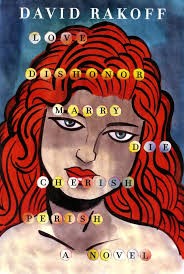
Not sure if you can make out the cover of this novel-in-verse, the final work written by Mr. Rakoff. The title words (letters) show through tiny round holes, a colorful, inviting and fun art project by design genius Chip Kidd. The gorgeous illustrations are by Seth, the Canadian illustrator and recent Lemony Snicket collaborater, both of whom were it seems brought in by NPR This American Life pal and Rakoff-booster David Sedaris to make the project happen for their dying friend. The drawings are portraits (as the one on the cover) introducing the characters, pretty darn compellingly, of the wicked stepfather, the girl he rapes, the young and precocious artist-boy, the characters of his erotic gay comic book from the grown-up artist man's San Francisco “blue” period you might call it. The illustrations are a tableau to match that of the novel itself, which is a hundred pages of rhyming couplets (anapestic tetrameter I am told) charting the stories of characters tragic and struggling. Twelve stories, inter-connected but of course, and via the structure of sentence, rhyme and story organized into a fun house of correspondence and symmetry.
Like a lot of people, I was introduced to Rakoff through his voice, literary and sonic too. Is there anything better than that, hearing a writer talk about her or his project, read from it or, better yet, perform and crack wise and or promise more on the perfect medium for all of the above, the radio? “This American Life” has been one of the best things about public radio,

and Rakoff (along with Sarah Vowell, David Sedaris, others in the TAL posse) one of the best things about the show. I adored his first book, and was so sorry to hear about the time I began reading the essays in his final essay collection, Half Empty, that his cancer had returned. Sorry for him, sorry for myself. The guy did it all, creating a big world out of what is small, a Joseph Cornell miniature diorama that somehow got bigger the further you were from it. His politics and humor and self-deference were almost as attractive as his personable self-regard. He was a gentle show-off, so that it's kinda perfect that he just went for it, writing a novel in rhyme, who cares that it's maybe tantamount to writing an opera in crossword puzzle
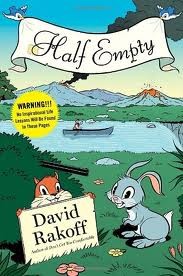
or a short story in Morse Code. He could do anything, was an actor and an artist. He showed off as long as he could, and then some, after living most of his life with the cancer which finally so destroyed his body that all, everything he could still do was compose, talk, exercise his mind.
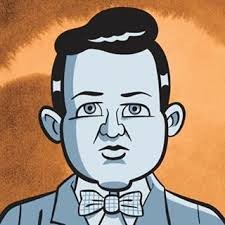
And, as in Doctorow's Ragtime, everything is connected, surprisingly but logically and sweetly, with a conclusion and an image that affirms sensuality and beauty and what is genuine, despite or because of all this artifice. Let's hear it for showing off!
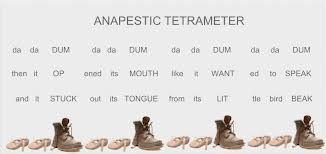
And as much as I enjoyed reading this book (on a train trip to Burbank, of all places), I can't help but imagine further delight, melancholy, welcome emotional tumult and intellectual fun in listening to it read, performed, by its author. Unbelievably, just weeks before his slow, painful death, Rakoff not only completed the book, outlined its design with Chip Kidd, worked with Seth on illustrations, but found the energy and wonderfully, perversely life-affirming will and self-love

read by DR on a recent “This American Life.” Or you could just read it out loud, as best you can, to someone you love. Or hate, like these two assholes! (That was for you, David.)


One Reply to “Love, Dishonor, Marry, Die, Cherish, Perish: Half-full, Completely Immortal David Rakoff”